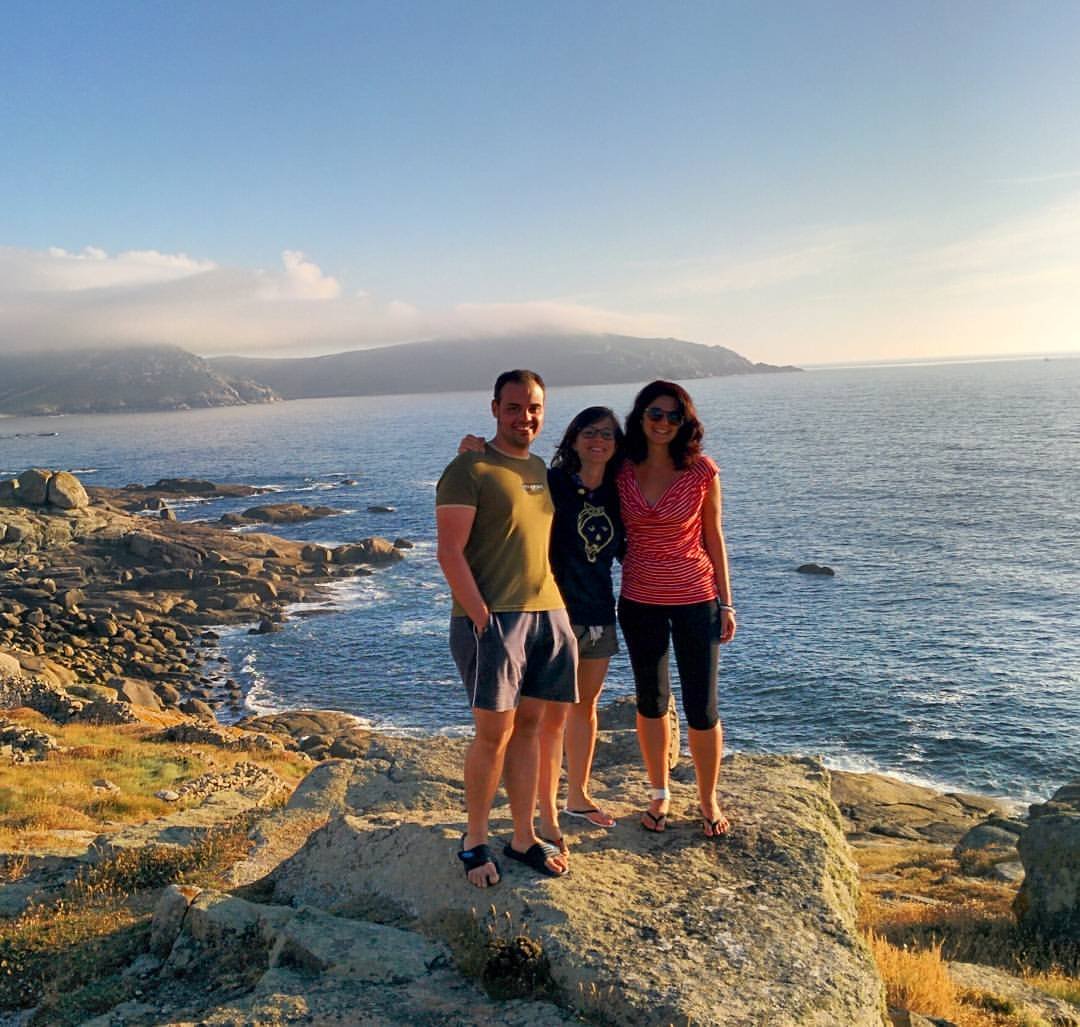This is my travelogue about my Trip on the Road to Santiago!
You can find the other posts about my trip here:
The Camino de Santiago? An exceptional route - #part1
The Camino de Santiago - Some history #part2
On July 16, 2016, I and my two friends landed in Santiago de Compostela to undertake a small part of the journey: the Cammino to Finisterre and Muxia which would in fact be the last optional part of the Cammino that officially ends in the Santiago de Compostela cathedral . The Cammino - as a story here - starts from different points in Spain and Europe.
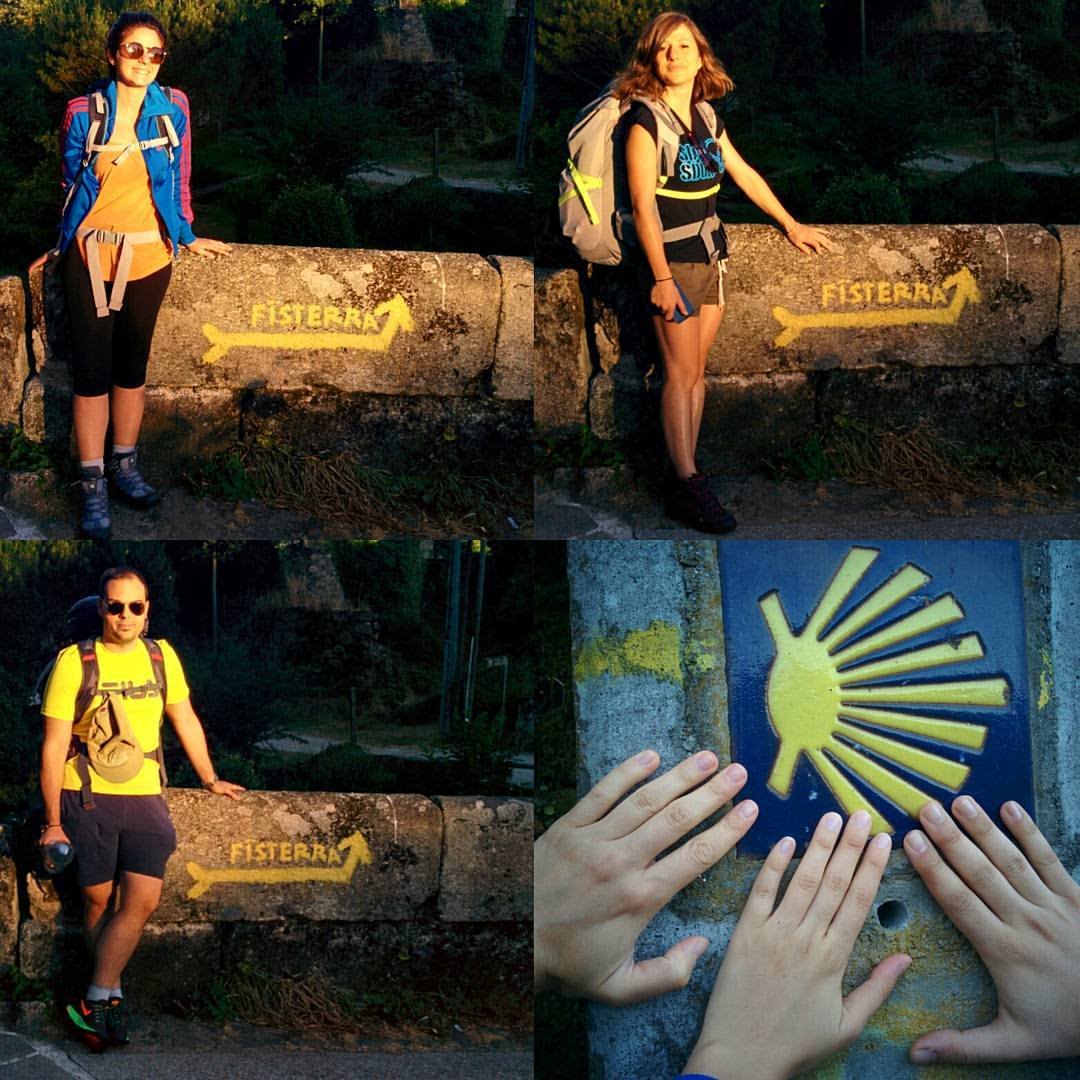
The Cammino range from different directions, following different paths, but they all rejoin in Santiago.
The origin of the pilgrimage to Finisterre and Muxia is not sure: it is probably due to the pre-Christian period when Finisterre was considered the end of the world.
During the Middle Ages, the first hospitals were inaugurated to welcome pilgrims along this path. Some pilgrims continue their journey to Muxia, who is on a day trip to Finisterre.
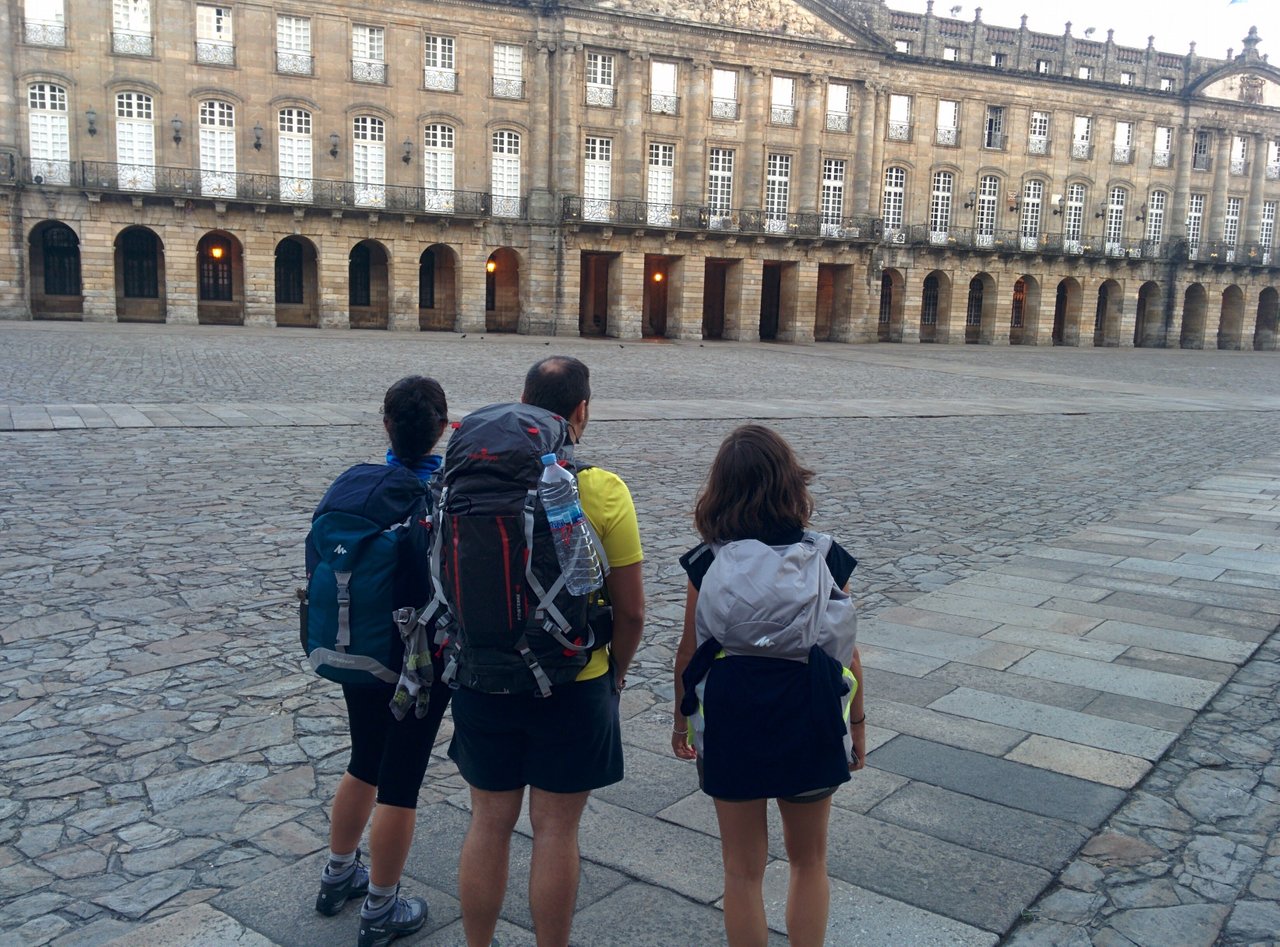
We opted for the route that runs through Negreira, Olveiroa, Dumbria, to get to Muxia first and then finish the Cammino, as it once was, to Finisterre..
We walked more than 110km in 6 days, with stays of about twenty miles a day.A bit 'naive, our guide was the travelogue of a pilgrim who undertook the journey in 2012.Without a map, only with an orientation brochure where to collect the stamps of the various albergues, we ventured into this path without too much concern. In fact, the route is completely marked and you can not risk getting lost, thanks to the stone columns decorated with the yellow shell and LA FLECHA AMARILLA (the yellow arrow) indicating the direction and the missing miles to reach the goal. Often the arrow is drawn on the ground, on the path, on the trunks of the trees or on the corner of a wall, always pointing to the way.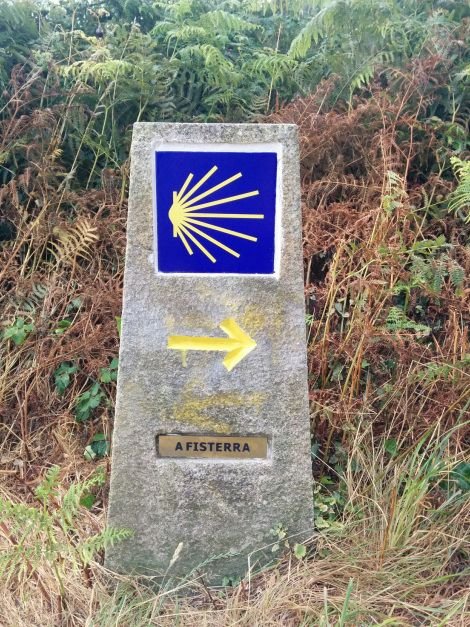
We never missed the road, even thanks to the precious tips of traveling companions that preceded us and shared with us any problems. The good thing about the journey is also this: to share something with perfect strangers that are, in some way, essential to the success of the journey.
We have known so many people on this journey and each one, in its own way, meant something, it was important to the overall meaning that once we came home we feel to give to what we have experienced.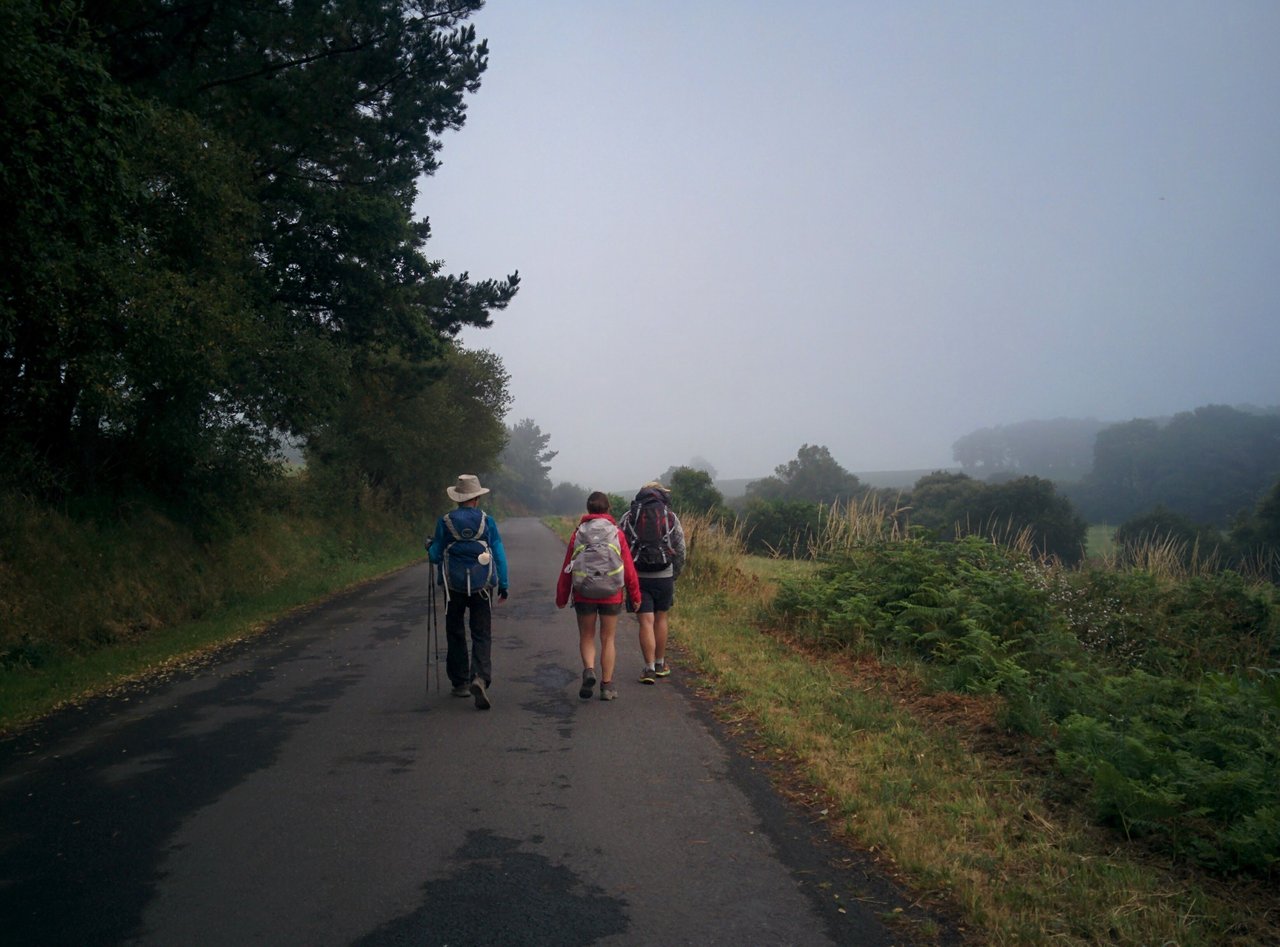
It would not have been the same journey without singing with Choi, from Korea, "O my only" at dawn in a wheat field, or hear Morricone's notes coming out of his ocarina; It would not have been the same without sharing a chupito at 11 am with Adolf and listening to his stories about horreo; It would not have been the same without the encounter with Antonello and Andrea, comrades of tales, of providential aid to exhausted seams and sunsets on the ocean. It would not have been the same without Raul's galego accounts on the Celtic roots of Galicia, about how, in the end, everything is a cycle that returns, an innovation that, in the end, never change.